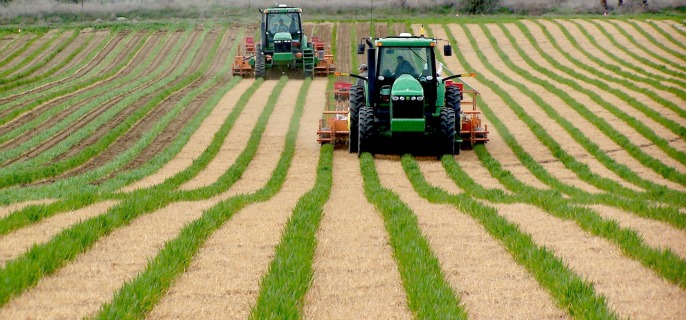
Agriculture’s contribution to Oregon’s economy, environment, and social well being is worth celebrating. In observing National Agriculture Week March 13-19, Americans are encouraged to say thank you to the more than 2 million farmers and ranchers who produce food and fiber for a living. Statewide, there are more than 35,000 agricultural operators for Oregonians to salute.
“There’s no question that agriculture continues to be a major part of our economy and that farmers and ranchers make huge contributions to Oregon’s environmental quality,” says Oregon Department of Agriculture Director Katy Coba.
Nationally, Ag Week and Ag Day, celebrated March 15, encourage Americans to understand how food and fiber products are produced, value the essential role of agriculture in maintaining a strong economy, and appreciate the role agriculture plays in providing safe, abundant, and affordable products.
An Oregon State University study commissioned by ODA last year provides a numerical snapshot of agriculture’s importance to the state’s economy:
· Agriculture is directly and indirectly linked to about $50 billion in sales of goods and services, which is more than 13 percent of the statewide total of sales involving all industry sectors.
· Oregon agriculture directly or indirectly supports more than 326,000 full or part-time jobs, making up almost 14 percent of total jobs in the state.
· Oregon agriculture is responsible for $22.9 billion or 10.6 percent of the net state product.
A few additional statistics support the notion that agriculture is worth celebrating:
· More than 98 percent of Oregon’s farms are family operations– dispelling the notion that agriculture in the state is made up of big corporate farm factories.
· Oregon agriculture is a key traded sector, ranking first in volume of exported products and third in value of exported products.
· Nationally, one farmer supplies food for about 155 people in the US and abroad.
In preparing for National Ag Week, ODA Director Coba has developed key messages to a variety of audiences this year. She notes that Oregonians are very enamored with agriculture and especially like their food to come from a local grower whenever possible. Coba also commends farmers and ranchers for putting practices in place that minimize impacts on Oregon’s natural resources. They realize that if they don’t take care of the land and water, they are not going to be productive. In addition, agricultural producers provide habitat for wildlife in Oregon.
Koba had a specific message for the ag community:
“Oregon would not be what it is without agriculture,” she said. “Whether it’s small farms, large farms, whether you are marketing locally or internationally, you are all valued. Be proud of what you are doing.”










